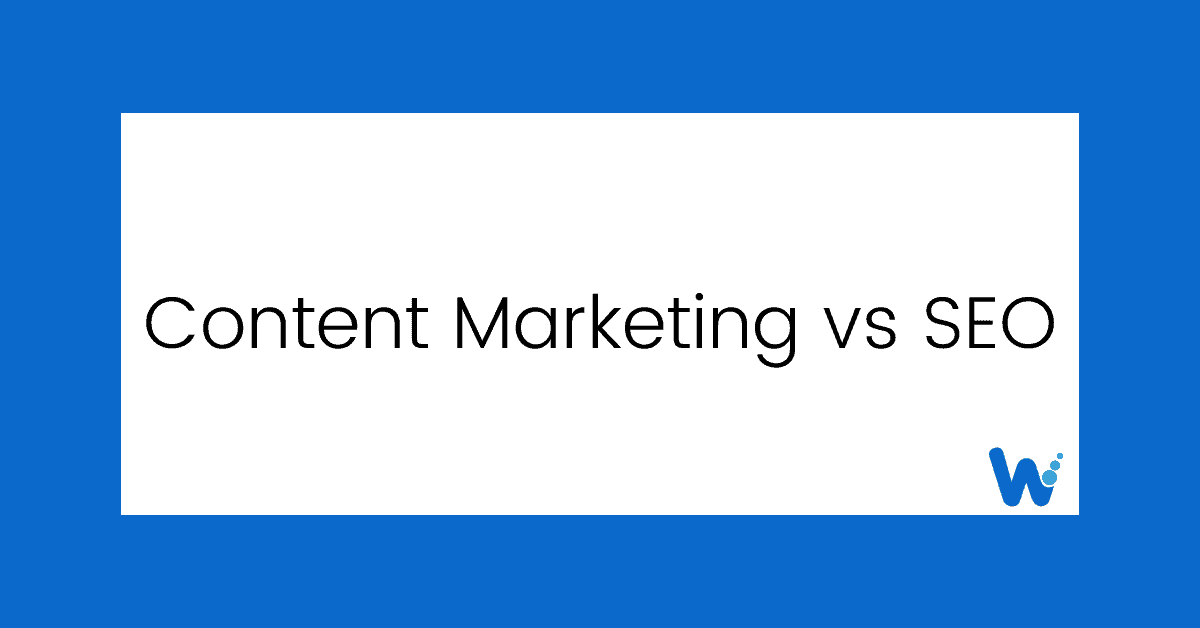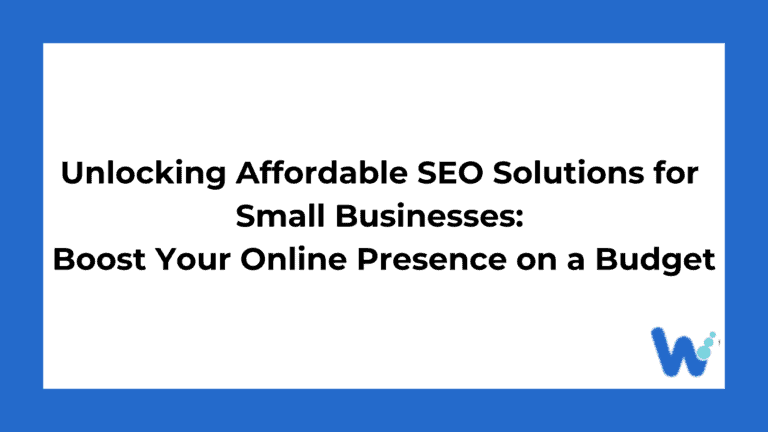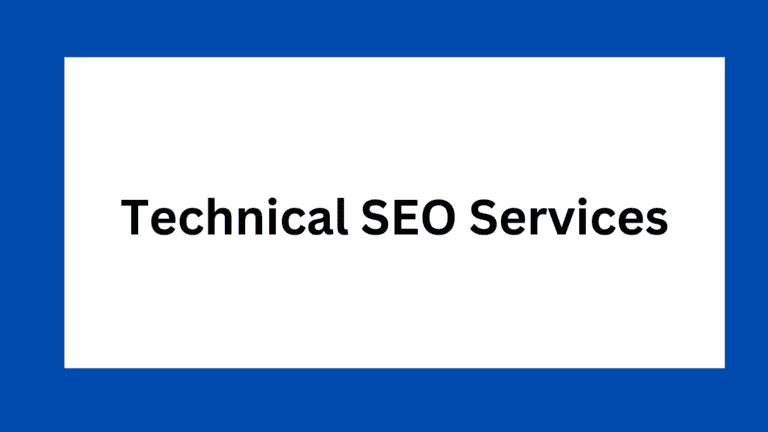SEO (Search Engine Optimization) and content marketing are key digital marketing strategies. Companies usually use both strategies to draw users to website traffic and raise their online presence. SEO is all about boosting websites and pages to come up higher in SERP (search engine results pages). On the other hand, content marketing focuses on crafting and sharing quality content that grabs interest and encourages user interaction with a brand.
In a report by Content Marketing Institute, it’s shown that 73% of B2B marketers and 70% of B2C marketers include content marketing in their online marketing plans. A different study from Hubspot suggests that 88% of marketers (Both B2B and B2C) put SEO into the marketing plan to enhance the visibility and presence of their brand in 2023. There is an ongoing debate about whether content marketing or SEO is better, so let’s discuss which one is best in this content marketing vs. SEO comparison.
What is SEO?
SEO, also known as Search Engine Optimization, is one of the best strategies to enhance the visibility and ranking of a website or web pages in search engine result pages. The main goal of SEO is to make a website search-engine friendly so that the search engine can easily understand the content of a website, index it properly, and show it on the top query result page when users search results for related information.
There are many techniques used in SEO to increase organic traffic, including keyword research and optimization, generating high-quality content, website structure(header tags, headings, title, and so on), as well as creating relevant backlinks intended to ensure the website’s trust and reputation.
SEO is important for businesses that sell products and services online, digital publications that rely on on-page ads, as well as all websites aiming at increasing search-driven traffic.
Types of SEO
There are three main SEO strategies:
- On-page SEO: It focuses on optimizing the on-page elements of the web page, including content quality, choice of relevant keywords, meta descriptions, meta title, and headings structure(H1-H6)
- Off-page SEO: It involves off-page modifications, like link building (getting backlinks from other authoritative sites to yours), guest posting, sharing content on social media, etc.
- Technical SEO: It helps to optimize your website on the technical and structural aspects(fast load speed, broken links, auditing, crawlability, etc) to boost performance and user experience.
What is Content Marketing?
Content marketing refers to a specific digital marketing strategy where an organization creates valuable, consistent, and informational content to captivate and engage the target audience. The main objective of content marketing is to provide informative, entertaining, or educational content that aligns with the interests and needs of the target audience. The content marketing strategies include blog posts, articles, videos, infographics, social media posts, etc.
Content marketing is different from traditional advertising aims to direct advertising, content marketing provides value to the target audience. By continuously sharing valuable content, a business can present itself as a specialist in its field and create a dedicated and active audience. A solid online reputation is only possible with regular content marketing that builds strong trust between businesses and clients.
Comparing Content Marketing vs SEO.
Let’s compare SEO and content marketing to know their exact similarities and differences.
Similarities
SEO and content marketing serve different purposes but have common features. Both contribute to traffic driving, audience engagement, and website optimization. Let’s explore some of the similarities here:
- Organic Traffic
SEO and content marketing have one main target, i.e., leading users to websites. They use engaging posts, videos, and effective landing pages to attract specific audiences. SEO boosts search engine ranks, and content marketing uses methods like social media, email newsletters, and PR campaigns to attract organic traffic.
Example: A well-structured blog post created for SEO boosts search ranks and can be shared as part of a larger content marketing plan.
- Focus on Content
Each online component, be it social media sites or email signatures, contains content. Both content marketing and SEO depend on crafting compelling content to run their respective approaches.
Example: A brand’s virtual life depends on routinely sharing different content types, thus making its mark across many platforms.
- Content Marketing Boost SEO
Boosting your content marketing also boosts your website’s SEO. Content marketing is not just about compelling writing or lengthy blog posts but about improving the user’s online journey. It’s about better web page design, engaging visuals, distributing content for outreach, and more. When the user has a good time on your site, they stick around longer; this improves session time and decreases the website’s bounce rate, overall improving the website’s SEO.
Example: Optimizing the quality of the content and focusing on audience problem-solving for content marketing directly boosts SEO performance.
- Common Content Elements
Content marketing and SEO have shared elements when it comes to content types. It could be blog articles, landing pages, graphics, videos, or podcast episodes, each need careful keyword and audience research to get to the top of the search result page.
Example: A blog post with good keyword research meets SEO requirements and also aligns with content marketing objectives, offering useful knowledge to the readers.
- Distributing Content
Distributing content, a key part of content marketing correlates with the idea of off-page SEO. Old methods of link-building may have changed, but getting links from other platforms still exists. Currently, we distribute valuable content via guest posts, infographics, and partnerships that act as an off-page SEO approach.
- Keyword Research
Both content marketing and SEO depend on keyword research. SEO keywords play an essential role in improving landing pages, ensuring they rank for suitable terms. Meanwhile, Content marketing needs keywords for various content types like podcasts, infographics, videos, and social media posts.
Example: A thorough keyword plan is crucial for both SEO-centered landing pages and content marketing actions to maximize attention, clicks, and sales.
Differences
Looking into the contrast between content marketing and SEO exposes key differences. Let’s understand the main differences between these two strategies.
- Technical Complexity
When comparing SEO to content marketing approaches, SEO focuses more on technical details. SEO optimization covers technical aspects of the website, including:
- Use related keywords on your website.
- Enhance website speed or loading time for smooth browsing.
- Make the website mobile-friendly to reach all types of devices.
- Fix any broken links and reduce redirections for easy navigation.
On the other hand, content marketing focuses more on user interaction rather than complex details like SEO. The success of content marketing depends on understanding your audience and their needs. How users interact with and react to your content determines your content marketing.
- Structured Pattern
SEO adheres to a well-defined approach in contrast to content marketing. There are certain sets of rules and regulations to optimize a website. Conversely, content marketing is more personal and doesn’t have a strict success formula. Content marketing success is all about knowing your audience and tweaking tactics based on their reactions.
For a better understanding of differences, let’s have a look at the comparison table:
| Aspect | SEO | Content Marketing |
| Technical Complexity | Focus on Technical Details | Surface-level upgrades |
| Key Elements | Use related keywordsCatchy title for user attentionTech improvements for ranking(e.g., website speed, mobile friendliness, fixing links) | Understanding audience and their needsUser interaction determines successLess detailed, more audience-centric approach |
| Structured Pattern | Adheres to well-defined rules and regulations (e.g., optimizing keywords) | Personal and lacks a strict success formula (e.g., adjusting tactics based on audience) |
SEO and Content Marketing: How to Use Them Together
Often SEO and content marketing are seen as opponents, but the success of your business lies in their integration. SEO helps people find your content, and content marketing helps create high-quality content that fulfills the target audience’s needs. The key to success is teamwork. So, how do you integrate SEO and content marketing? Here’s how:
Identify Your Target Audience
If you know your audience well, SEO and content marketing work better. It helps create content that your audience loves. If your content doesn’t match your audience, it can hurt your rankings and conversion rates. So, it is recommended to spend more time researching your audience, what they like, and how they interact and react to your content, then tailor your content to them.
Find the Right Keywords
In SEO and content marketing, content is everything, and finding the right keyword
can enhance your online reach. Learn how to optimize keywords naturally in your content, find keywords that your audience is looking for, and create content around them.
High-quality Content
The secret to both SEO and content marketing is high-quality, informative content; it leads to better rankings and more interactions. Work on making your content easy and specific to your readers.
Choosing Between Content Marketing and SEO: Key Instances
In digital marketing, SEO and content marketing typically have their roles. Each primarily functions for certain situations related to unique business objectives. Let’s understand what situation both strategies take the lead to fulfill the particular business objective:
Scenario 1: Where Content Marketing Takes the Lead
Example: A local environmental organization organizes clean-up events every month to conserve the environment. Their mission is to engage the community and share their mission.
Here, we take a content marketing approach to fulfil the organization’s requirements. By using:
- Quality Content Creation: Create engaging blog content, posts, and social media content that display the organization’s actions and mission.
- Visual Storytelling: Use photo and video clips to emphasize community participation in clean-ups and their positive impact.
- Community Interaction: Boost user-generated content like stories, reviews, and participant photos to foster a community feel.
Why will content marketing be the key?
- The main aim is to tell a story and connect with people, not to focus on SEO keywords solely.
- The group prioritizes establishing a robust local presence. Content marketing aids in achieving this.
Scenario 2: Where SEO Takes the Lead
Example: An e-commerce website focusing on selling unique and rare collectables. It aims to increase the visibility of such rare goods that are searchable through an established online platform.
Here, we take an SEO approach to fulfil business requirements. By using:
- Keyword Optimization: Perform detailed keyword research to find popular, related terms to collectables and unique items.
- On-Page SEO: Enhance product page visibility in search engine results(SERPs) using well-researched high-traffic keywords, meta description, and alt tags.
- Link Building: Start a planned link-building effort to improve the website’s trust and authority in the specific niche.
Why is SEO key?
- The use of precise keywords helps grab the customer’s interest who are looking for collectables on the internet.
- SEO methods aim to make the website more visible in search results, directly aligning with the goal of attracting a targeted audience.
Future Evolutions in the Concepts
Both SEO and content marketing attract organic traffic to your website. Both have grown over the years, with their future expansions being ever more fascinating. Let’s explore the future evolutions for each:
Advancements in SEO:
- Putting users first: The time of just filling content with keywords has passed. Now, search engines understand what a user wants when they search. SEO will focus on providing content that truly responds to what the user is asking, not just on fitting in many related keywords.
- Developments in technical SEO: With the growing importance of Core Web Vitals, site speed, mobile compatibility, and overall user experience need attention. This means the role of technical SEO in getting a good ranking will grow even more.
- Adapting for voice search: As more people use voice search, SEO will have to evolve. This means focusing on easy-to-understand language and longer keywords in the content.
- Emphasis on local SEO: Local businesses will have to concentrate on their SEO efforts in areas like improving their Google My Business listings and increasing local references.
Advancements of Content Marketing:
- Data-driven storytelling: Content will lean on data more, using information from analytics and audience research. This will make experiences more personally focused. Content will connect with users emotionally and grow brand loyalty.
- Interactive content: Expect things like quizzes, polls, and calculators to gain favour. They hook users, encouraging repeat visits.
- More videos and audio: People enjoy videos and audio content as it is simpler to understand than plain text. If companies want to connect with people, they’ll need to create top-notch videos and audio.
- Influencer collaborations: Working with micro-influencers, who have a dedicated audience in your area, will be a better way to get to your target audience than traditional celebrity endorsements.
Conclusion
SEO and content marketing, both key in driving organic traffic, have their different functions. SEO makes you easier to find on the internet, while content marketing enhances user engagement. By using the strength of both strategies and keeping an eye on what’s coming next, your business can experience a significant online presence.
FAQs
Here are some of the frequently asked questions:
What is the main difference between content marketing and SEO?
The main difference is that SEO focuses on optimizing websites to improve their ranking in search engine results pages (SERPs) through technical adjustments and keyword optimization. In contrast, content marketing is about creating and distributing valuable, relevant content to engage and retain a target audience.
How do content marketing and SEO work together?
Content marketing and SEO work together by using quality content to drive traffic and improve search engine rankings. SEO techniques help in making content discoverable, while content marketing ensures the content is engaging, informative, and valuable to the audience.
Can a business succeed with just SEO or content marketing, or are both necessary?
While a business can achieve certain goals with just one of these strategies, using both in tandem is generally more effective. SEO makes content easily findable, while content marketing ensures that the content resonates with the audience, leading to better engagement and conversions.
What are the key elements of a successful content marketing strategy?
Successful content marketing strategies typically include understanding the audience’s needs, creating high-quality and informative content (like blog posts, videos, and infographics), and regularly distributing this content through various channels like social media and email.
How does content marketing impact SEO?
Content marketing impacts SEO by providing fresh, keyword-rich content that search engines favor. This includes articles, blogs, and other content forms that can improve a website’s relevance and authority, leading to higher search rankings.
Is keyword research important for content marketing?
Yes, keyword research is important for content marketing as it helps in creating content that aligns with what the target audience is searching for, thereby increasing the content’s relevance and visibility.
What role does user experience play in both content marketing and SEO?
User experience plays a critical role in both content marketing and SEO. For SEO, a good user experience is a ranking factor (page load time, mobile-friendliness, etc.), while in content marketing, it’s about keeping the audience engaged and interested in the content.
How have content marketing and SEO evolved in recent years?
In recent years, both content marketing and SEO have evolved to focus more on user intent, quality content, and overall user experience. Technical SEO has become more complex, and content marketing now involves more data-driven and interactive approaches.
How do I allocate resources between content marketing and SEO for maximum impact?
Allocate resources by first ensuring your website is SEO-optimized, then invest in creating high-quality, SEO-friendly content. Balance your budget between technical SEO aspects and developing engaging content that caters to your audience’s interests and search behaviors
Can small businesses benefit equally from both content marketing and SEO?
Yes, small businesses can benefit from both. While SEO helps them become more visible online, content marketing allows them to build a relationship with their audience. Start with basic SEO to get found online, then use content marketing to engage and retain your audience.
What’s the best way to measure the success of integrating content marketing and SEO?
Measure success by tracking metrics like organic search rankings, website traffic, user engagement (time on page, bounce rate), conversion rates, and social shares. Use tools like Google Analytics to track these metrics and adjust your strategy based on the data.
How can I ensure my content marketing efforts are SEO-friendly?
Ensure your content marketing is SEO-friendly by doing thorough keyword research, optimizing your content for those keywords, and making sure your content is informative, valuable, and aligns with user intent. Also, ensure your website’s technical SEO is solid.









